A young teacher has told of her devastating cancer diagnosis after doctors initially dismissed her concerns, putting her ‘lumpy boobs’ down to her young age.
Beth Ferguson, 30, from Glasgow, first noticed a small lump on her left breast while showering one evening in March 2022.
But, given her age, fitness levels and family history, the maths teacher was not initially concerned.
She visited her GP who assured her it was ‘highly unlikely’ that the lump was cancerous, because ‘young people have lumpy boobs’.
Lumps in the breasts can develop for a number of reasons and are often caused by something harmless like tissue growth or a build up of fluid, according to the NHS.
Ms Ferguson’s doctors at the local breast clinic thought this was the case, as the lump was smooth and mobile indicating a cyst or non-cancerous growth.
‘At this point, I wasn’t worried’, she recalled. ‘The consultant wasn’t concerned as it was small and I was so young, but suggested I return if there were any changes.
‘So life went on.
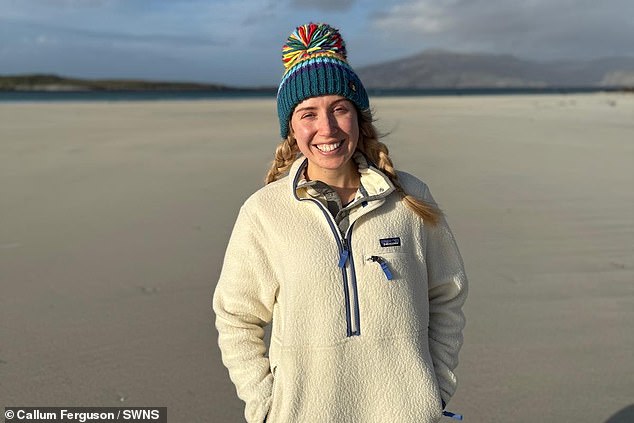
Beth was not initially worried when she found the lump because she was the healthies she had ever been and has no family history of the disease
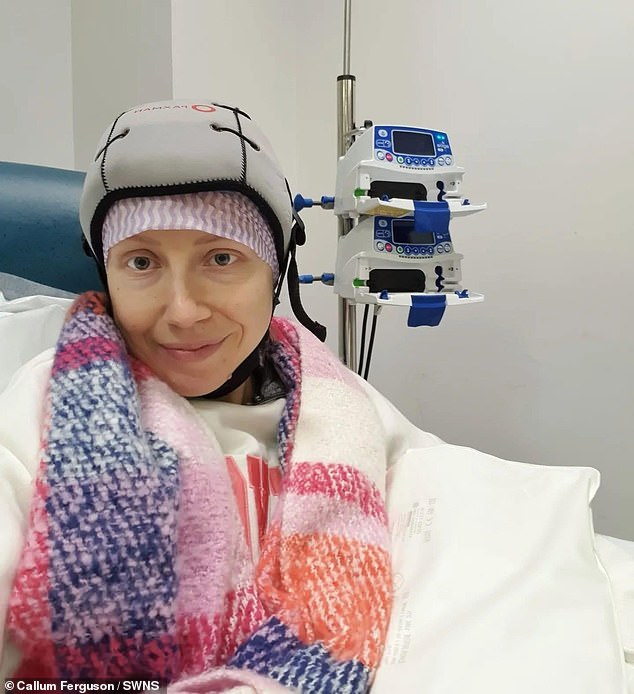
After initially being dismissed by doctors, the lump began to grow and Beth was diagnosed with breast cancer
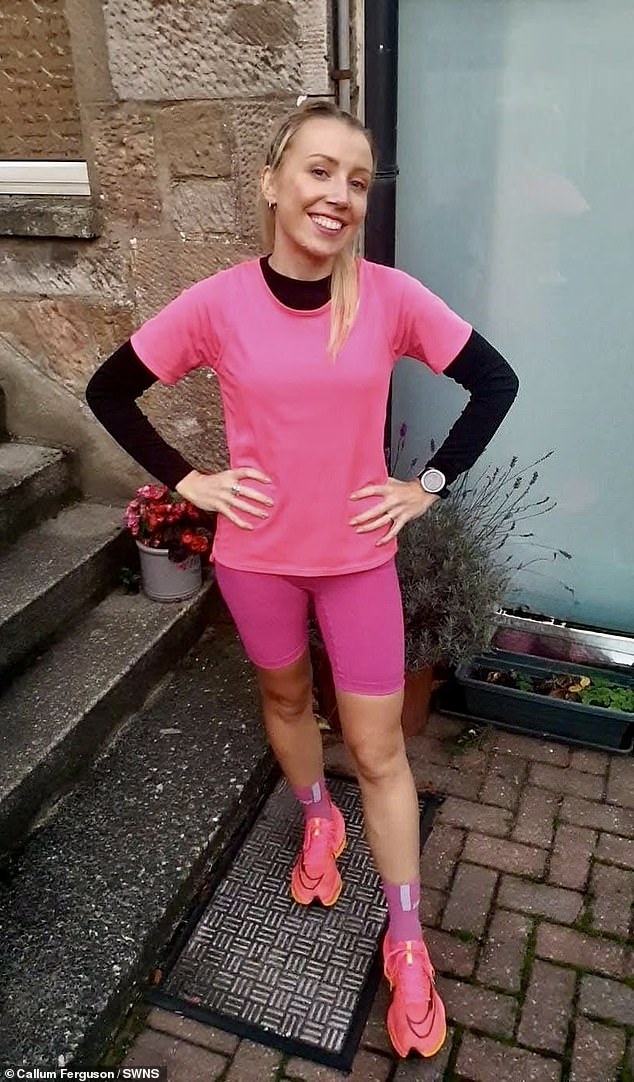
Beth continued her marathon training, going to the gym and teaching during her first few months of treatment
‘I was training for and completed the Boston Marathon and got engaged to my partner in New York.’
But in August 2023, just before the new school year started, she realised that the lump had grown. She went back to her GP and was referred to Gartnavel Hospital, Glasgow.
Scans later revealed she had a triple negative tumour—a type of aggressive breast cancer which typically affects women under 40.
‘Looking back I was a bit numb to be honest,’ she said.
‘You almost don’t believe it because I felt so fit and healthy. I have no family history of breast cancer, so I thought it was unlikely to be anything serious.
‘It was such a strange feeling to be so well but have such a terrible illness.’
Just two months later, the young teacher started the first of 16 gruelling rounds of chemotherapy.
Determined not to give in to her disease, Ms Ferguson stayed active between treatments, continuing her marathon training as well as teaching for the first few months.
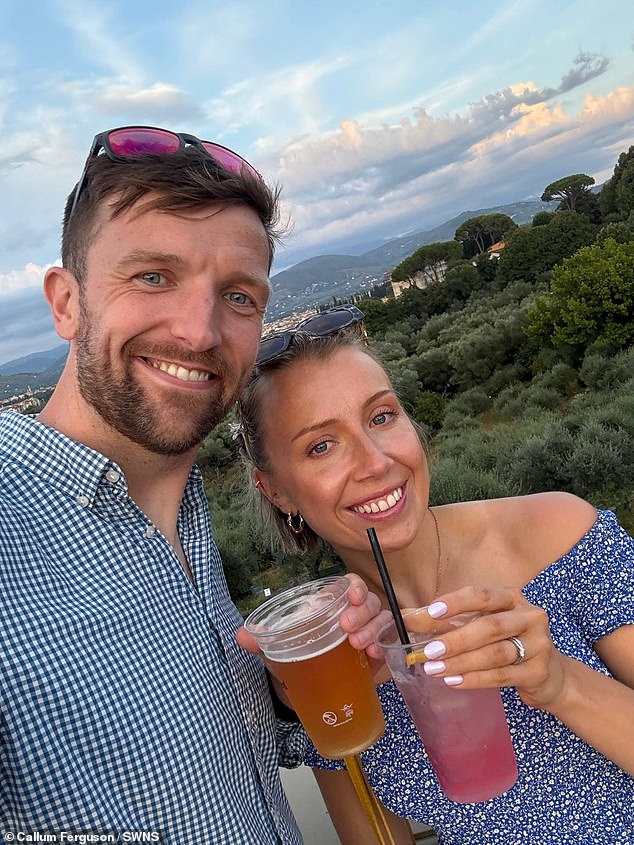
Beth and her partner got engaged shortly before her diagnosis in New York
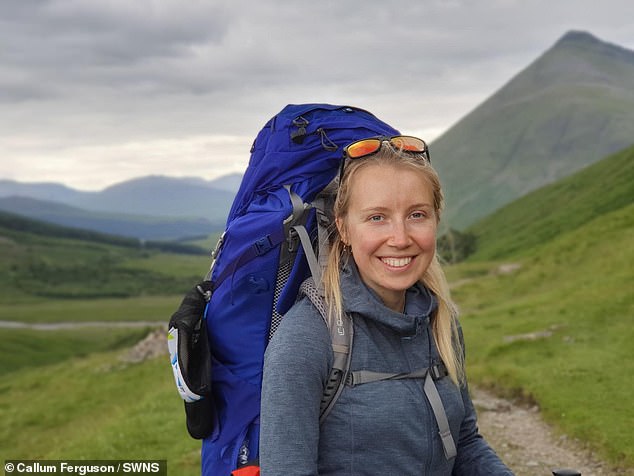
Beth said she was surprised that she could feel so well but have such an aggressive disease
Just a month after finishing chemotherapy, Ms Ferguson underwent breast reconstruction surgery to make a new breast in March 2024.
But then Ms Ferguson was given the devastating news that she would no longer be able to conceive naturally if she did not freeze her eggs before starting immunotherapy to shrink the cancer further.
‘They shut my ovaries down in order to protect them—I went into menopause overnight.’
But, after a lengthy battle Ms Ferguson was given the all clear in May 2024, which she has described as a ‘strange’ feeling.
‘I don’t think it’s what I imagined,’ she said. ‘I have struggled with the after effects of how to move in with my life.
‘Although it was great news, and everyone around me was happy it was the start of anxiety for me.’
Ms Ferguson is now campaigning for better understanding of the disease, supporting new research funded by charities Breast Cancer Now and Secondary 1st to develop more targeted treatment for the rare but aggressive cancer.
Researchers led by Professor Seth Coffelt, from the University of Glasgow, have been awarded almost £400,000 to fund research into a type of immunotherapy that can kill these specific cancer cells and stop them from spreading.
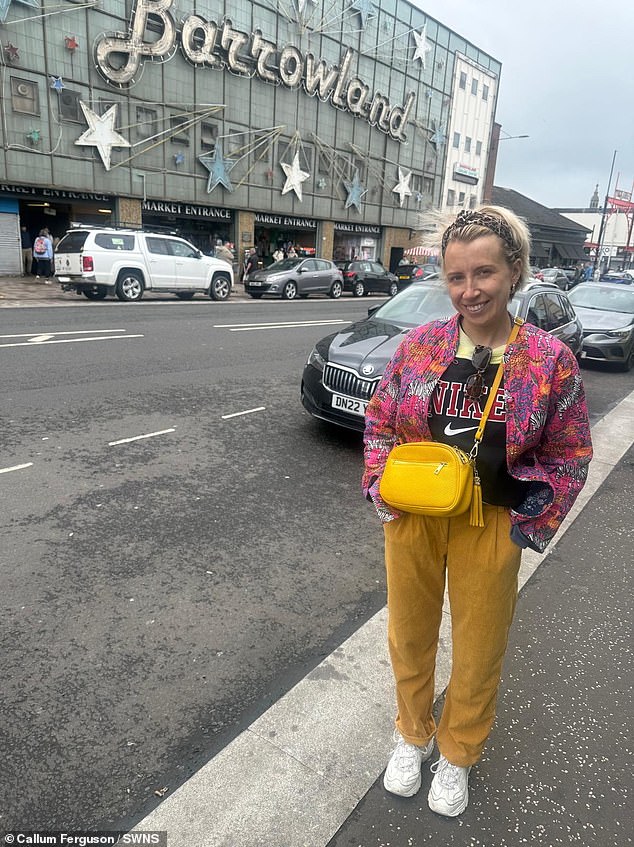
Beth underwent 16 rounds of chemotherapy followed by breast reconstruction surgery and immunotherapy to shrink the cancer
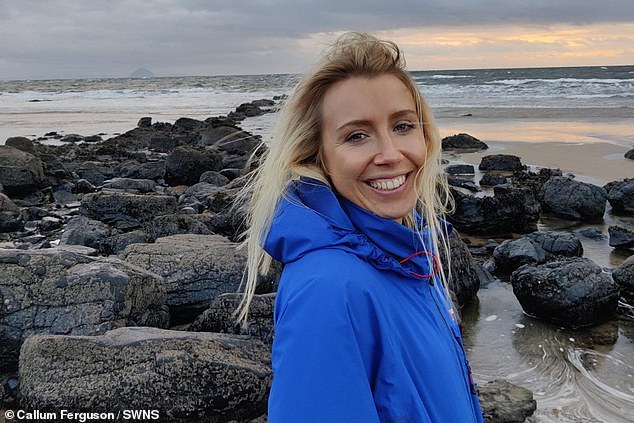
Beth is now supporting research into more targeted treatments for the disease with 11,5000 women dying of breast cancer each year in the UK
Ms Ferguson said: ‘I appreciate that the research is being funded at the Beaston institute as it was the team in Glasgow which treated me and cared for me, with everything I’ve been through.
‘It’s so important that we have more research into triple negative breast cancer. the hope that the researchers will find other targeted therapies in time for people like me is what keeps me going every day.’
Triple negative breast cancer affects around 15 per cent of women with the disease.
Symptoms include a lump or thickening in the breast or armpit, change in the shape or feel of the breast, skin changes such as puckering dimpling or a rash, and fluid leaking from the nipple.
In some cases women with triple negative breast cancer will have a fault in the BRCA1 or BRCA2 genes—dubbed the Angelina Jolie breast cancer gene after the actress underwent a preventative double mastectomy after testing positive in 2013.
One in seven women in the UK are diagnosed with breast cancer in their lifetime—around 56,000 a year—making it the most common cancer in the UK.
It comes as concerning new research has suggested breast cancer cases are on the rise in under-50s.
Now, experts are campaigning for women as young as thirty to be screened for breast cancer on the NHS, bringing forward checks by twenty years.












